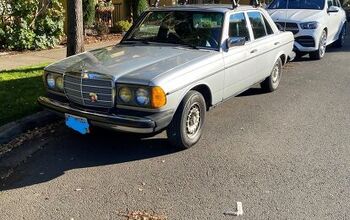8 Views
Report: Ontario Government To Sell GM Shares To Fund Public Transit
by
Derek Kreindler
(IC: employee)
Published: April 2nd, 2014
Share
The Globe and Mail is reporting that the Ontario government may dump its shares of General Motors as a way of helping to fund expanded public transit in the Greater Toronto Area.
According to the newspaper, the sale of GM shares will be part of a broader asset sale. With tax increases (namely an increased sales tax and a new levy on gasoline sales) being ruled out, the asset sale will likely be used to make up the shortfall in funding for badly needed public transit for Toronto and its surrounding regions.
At current market value, the shares are valued at $1.4 billion CAD.
Derek Kreindler
More by Derek Kreindler
Published April 2nd, 2014 8:08 PM


































Comments
Join the conversation
Has absolutely nothing to do with any scandals or recalls whatsoever.
1.4 billion value. Talk about a wonderful return on investment. IIRC, Ontario ponied up 4 billion as part of their contribution to the GM bailout. Sell explanatory as to why Marchionne expecting a 700 million dollar cheque.
How about Toronto funds Toronto transit. Between this and the proposed fuel tax on the entire province solely to fund Toronto transit, it's pretty clear that Toronto feels that the rest of Ontario exists solely to serve its interests. Or perhaps Torontonians simply don't realize there is an Ontario outside of the GTA.
No it's not a myth, read this: http://www.intransitionmag.org/archive_stories/streetcar_scandal.aspx And here in Columbus, the transit system was privately run until 1972 because the electric company owned it. John